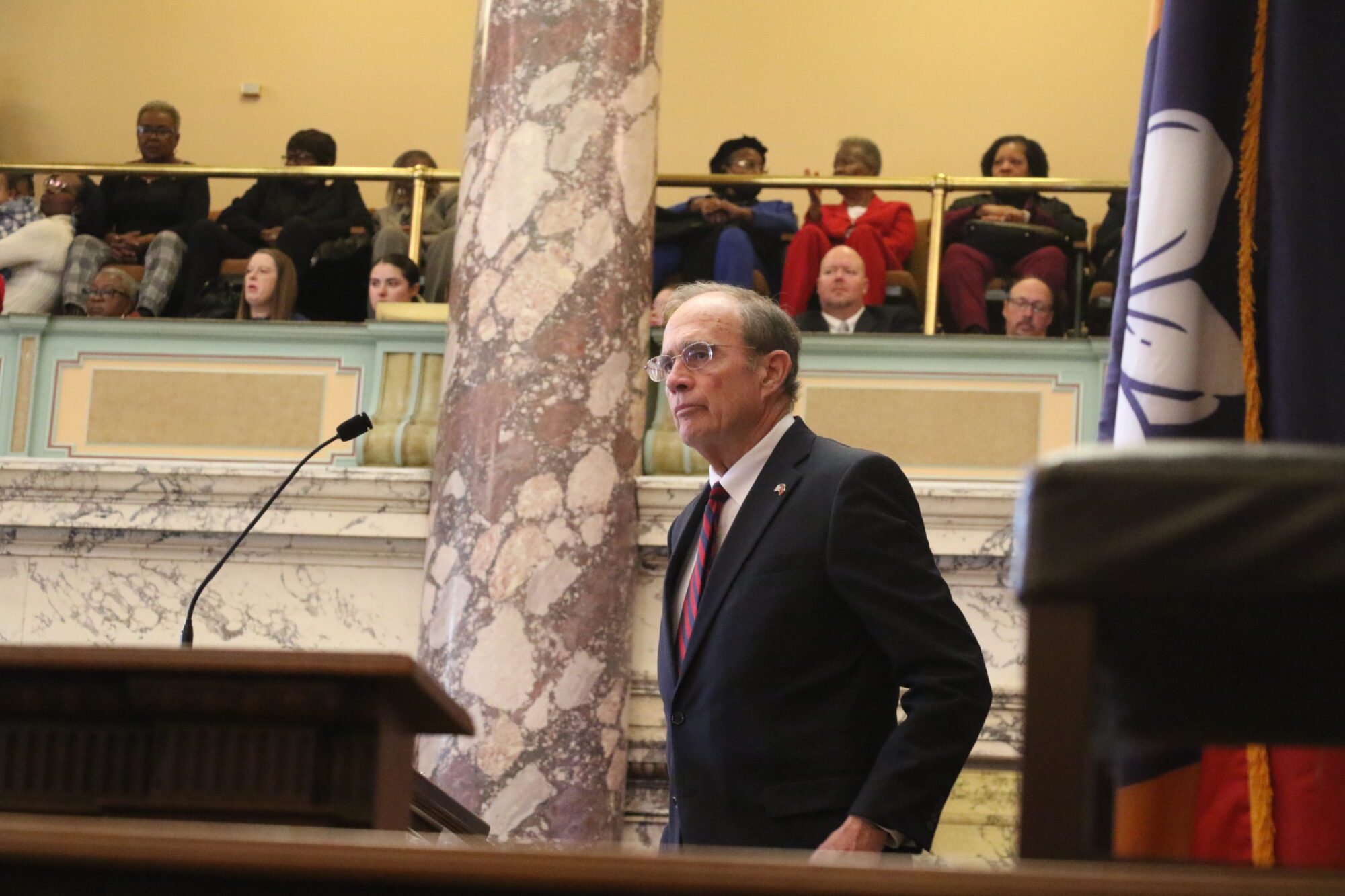
Lt. Gov. Delbert Hosemann prepares to gavel Mississippi's state senate into the first day of 2024's legislative session. (Photo by Jeremy Pittari)
- Lt. Governor Delbert Hosemann highlights education-related bills passed this year “to keep the Mississippi miracles coming.”
Our students and schools are excelling in Mississippi.
We are one of only five states in the nation to meet all quality benchmarks for early education—and we have increased capacity in legislatively-funded programs by 6,160 seats since 2020. More students are passing the Third-Grade reading test on the first administration. At a whopping 89.4 percent, our graduation rate is the highest it has ever been, exceeding the national rate by almost 3 points.
Building on these achievements, the Legislature advanced major education legislation this Session to keep the Mississippi miracles coming.
Topping the list, we replaced the decades-old school funding formula. The new formula injects an additional $217.4 million into public schools, plus funds to cover health insurance and retirement plan increases. This is in addition to a $100 million funding increase and $300 million in teacher pay raises last term.
Here is how the formula was created and how it works: the Senate devised a calculation, run by operation of law, for a base student cost which is centered on the average teacher salary and teacher-student ratio in Mississippi. This year, the base student cost is about $6,695. The House replaced the old formula’s “add-ons” to the base student cost with weights for students who are low-income, have a special need, English language learners, gifted, or in a career and technical education class. Then, a sparsity factor is applied to help rural districts pay costs associated with transporting students long distances. Finally, the school district’s local contribution is subtracted from the total amount.
In addition to increasing funding, we simplified the calculations so school districts can now budget better and improve the allocation of their resources to student populations with significant needs.
We passed a bill to allow retired teachers in areas facing a district-wide or subject area shortage to return to the classroom full time while drawing down their benefits. Until now, teachers could only return to teach half the year after retirement, an arbitrary limitation I never found justified. With a current shortage of more than 5,000 teachers and the need for mentors for those new to the job, we must give every experienced teacher who wants to come back the opportunity to return to the classroom.
We also set the stage to address a growing mental health crisis. Last summer, when I visited schools, the No. 1 issue parents and educators brought to my attention was the deterioration of student mental health after the pandemic. Following Texas’s lead, we created a task force to assess current training and resources to address the challenges our students are facing, determine where gaps exist, and look at other states’ successful models.
Other significant legislation from this Session impacting our students and schools included bills to:
- Reauthorize the Education Scholarship Accounts (ESAs) allowing children with special needs like dyslexia or autism to use funds allocated for their base student cost at a different school if their current school does not meet their special need;
- Provide an additional $3 million toward career coaches for a total appropriation of $15 million. This will result in 200 coaches in 195 schools, meaning every secondary school which has requested a career coach will have one next year; and
- Reauthorize and expand the Winter-Reed Teacher Loan Repayment Program, which provides stipends directly to loan service providers for teachers which have outstanding student loan debt. This is another means to address the teacher shortage growing in the state.
A child’s brain is the most important resource we have in Mississippi. The work to protect and cultivate this critical resource is never done, but the Legislature made great strides this past Session.









